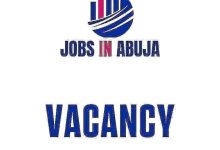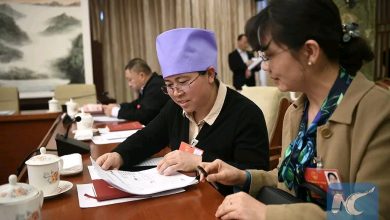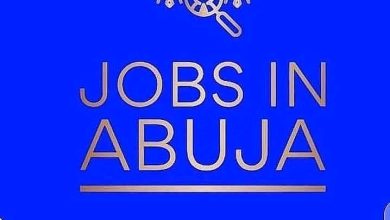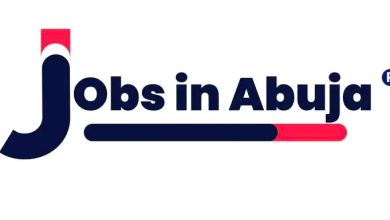How to Apply for Human Resource Management Roles:
Job Opportunities in Human Resource Management
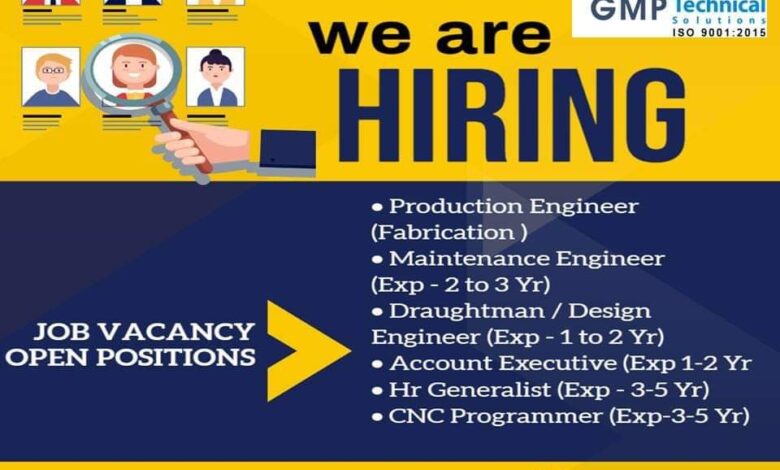
Are you passionate about people, organizational culture, and talent development? Are you a natural problem solver with excellent communication skills? If so, a career in Human Resource Management might be the perfect fit for you. In this post, we’ll explore the exciting job opportunities in HR and provide guidance on how to apply for roles in this field.
Job Opportunities in Human Resource Management:
Human Resource Management (HRM) professionals play a crucial role in organizations by managing and maximizing the potential of their most valuable asset—people. From recruitment and talent acquisition to employee engagement and development, HRM encompasses a wide range of responsibilities. Here are some job opportunities in HRM:
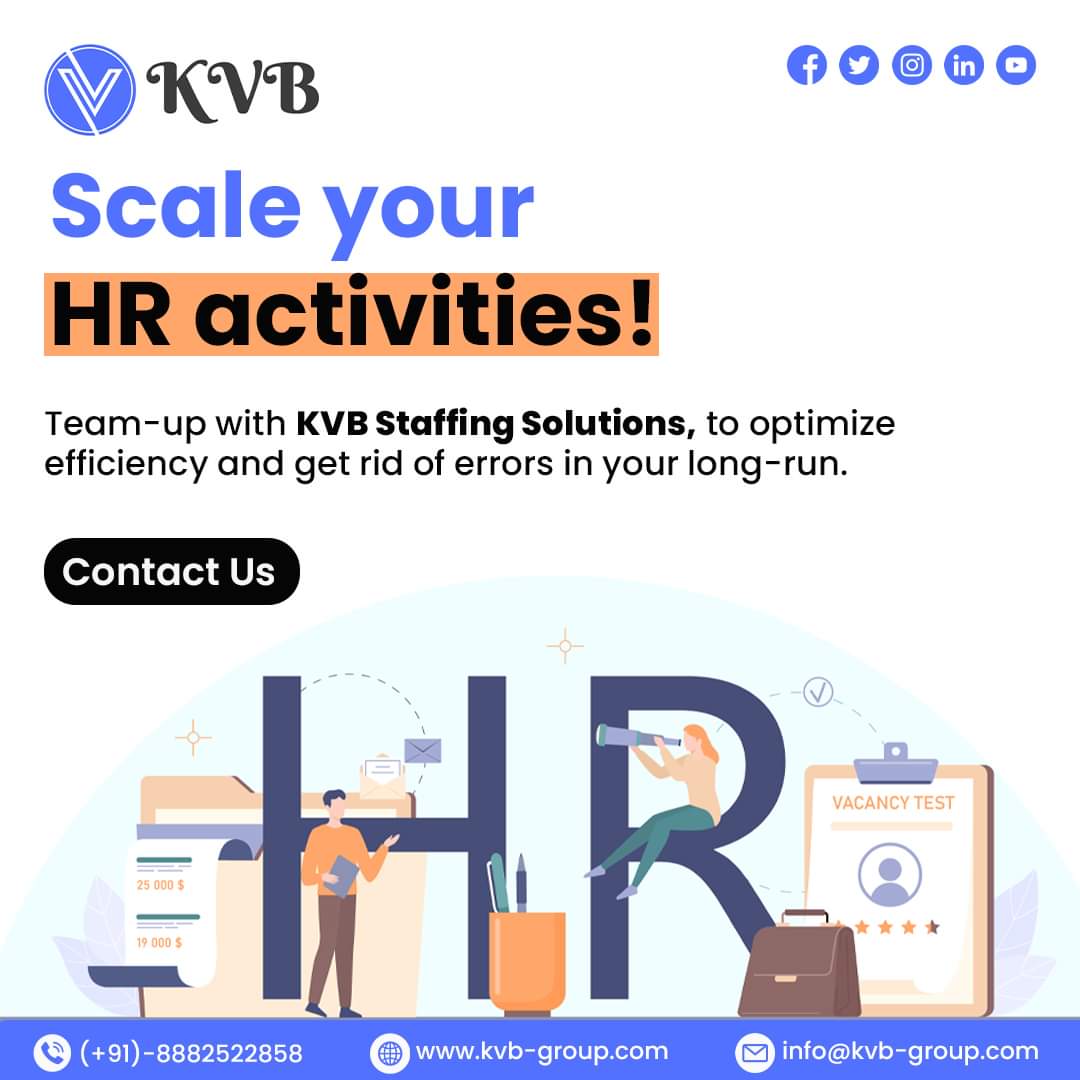
- HR Generalist: As an HR Generalist, you’ll have a diverse set of responsibilities, including recruitment, employee relations, performance management, training and development, and HR policy implementation. This role requires a well-rounded understanding of HR functions and the ability to handle various HR-related matters.
- Recruitment and Talent Acquisition Specialist: In this role, you’ll focus on sourcing, attracting, and selecting top talent for the organization. You’ll develop recruitment strategies, conduct interviews, and collaborate with hiring managers to ensure a smooth and effective hiring process.
- Compensation and Benefits Analyst: As a Compensation and Benefits Analyst, you’ll design and administer competitive compensation and benefits programs. You’ll conduct salary benchmarking, evaluate employee benefits packages, and ensure compliance with relevant regulations.
- Employee Relations Specialist: Employee Relations Specialists are responsible for promoting positive employee relations within the organization. They handle conflict resolution, manage disciplinary actions, and develop employee engagement initiatives to foster a positive work environment.
- Training and Development Coordinator: In this role, you’ll design and implement employee training and development programs. You’ll assess training needs, coordinate training sessions, and evaluate the effectiveness of training initiatives to support employee growth and skill enhancement.
How to Apply for Human Resource Management Roles:
- Identify Your Area of Interest: HRM offers various specializations, so it’s essential to identify your area of interest. Determine whether you’re more interested in recruitment, employee relations, training and development, or other HR functions. This clarity will help you focus your job search and tailor your application accordingly.
- Update Your Resume: Highlight your relevant skills, experiences, and qualifications on your resume. Emphasize your HR-related experience, education, certifications, and any specific achievements that demonstrate your capabilities in HRM.
- Enhance Your HR Skills: Continuous learning and professional development are crucial in HRM. Stay updated with the latest trends, best practices, and legal regulations in the field. Consider pursuing certifications like the Professional in Human Resources (PHR) or the Society for Human Resource Management Certified Professional (SHRM-CP) to enhance your credentials.
- Network and Seek Opportunities: Attend HR networking events, conferences, and join professional HR associations. Engage with HR professionals and explore job opportunities through networking. Utilize online job boards, professional networking platforms, and HR-specific job websites to search for HRM roles.
- Tailor Your Application: When applying for HRM roles, tailor your application to highlight your relevant HR experience, skills, and qualifications. Address the specific requirements and responsibilities outlined in the job description. Showcase your ability to handle employee relations, recruitment, training, or any other HR functions mentioned.
- Prepare for Interviews: Research the organization and its HR practices before your interview. Be prepared to discuss your HR knowledge, problem-solving abilities, and experiences relevant to the role. Demonstrate your understanding of HR challenges and how you can contribute to the organization’s HR objectives.
- Demonstrate Your HR Values: During the application process, emphasize your alignment with key HR values such as confidentiality, fairness, diversity and inclusion, and ethical decision-making. Highlight your ability to handle sensitive employee information with discretion and maintain confidentiality.
- Follow Up: After an interview or submitting an application, follow up with a thank-you note or email expressing your appreciation for the opportunity. This gesture reinforces your interest in the position and leaves a positive impression.
Embarking on a career in Human Resource Management can be rewarding and fulfilling. By following these steps and showcasing your HR expertise and passion, you can increase your chances of securing a job in this exciting field. Good luck with your HRM career journey!
The Role of an HR Generalist:
As an HR Generalist, you’ll play a vital role in managing various aspects of the employee lifecycle and supporting the organization’s HR functions. You’ll work closely with both employees and management, serving as a trusted advisor and resource for HR-related matters. Some key responsibilities of an HR Generalist include:
- Recruitment and Onboarding: You’ll be involved in the recruitment process, from job posting and candidate screening to conducting interviews and facilitating the onboarding process for new hires. Your goal will be to attract and retain top talent that aligns with the organization’s values and objectives.
- Employee Relations: As an HR Generalist, you’ll handle employee relations matters, including conflict resolution, disciplinary actions, and grievance handling. You’ll foster a positive work environment by promoting open communication and ensuring fair and consistent treatment of employees.
- Performance Management: You’ll support the performance management process by assisting in the development and implementation of performance appraisal systems, providing guidance to managers and employees, and addressing performance-related issues.
- Training and Development: HR Generalists contribute to the training and development initiatives of the organization. You’ll assess training needs, coordinate employee training programs, and promote professional development opportunities to enhance employee skills and performance.
- HR Policy Implementation: You’ll be responsible for implementing and enforcing HR policies and procedures in compliance with relevant laws and regulations. This includes staying updated on labor laws, employment standards, and industry best practices.
- Compensation and Benefits: Collaborating with the HR team, you’ll assist in managing compensation and benefits programs. This may involve salary administration, job evaluation, benefits administration, and ensuring competitive and equitable compensation practices.
- HR Administration: As an HR Generalist, you’ll handle various administrative tasks, such as maintaining employee records, managing HRIS systems, preparing HR reports, and ensuring compliance with documentation and record-keeping requirements.
Skills Required for Success as an HR Generalist:
To excel as an HR Generalist, certain skills and qualities are essential. These include:
- Strong Communication: Excellent verbal and written communication skills are crucial for effective interaction with employees, management, and stakeholders. You’ll be required to convey information clearly, listen actively, and foster positive relationships.
- Problem-Solving: As an HR Generalist, you’ll encounter diverse challenges and issues. The ability to analyze problems, think critically, and develop creative solutions is essential. You should be able to handle sensitive situations with diplomacy and find resolutions that balance organizational and employee needs.
- Ethical Conduct and Confidentiality: HR Generalists deal with sensitive employee information regularly. Maintaining confidentiality, exercising discretion, and upholding ethical conduct are fundamental to building trust and credibility.
- Adaptability: HR landscapes are constantly evolving. Being adaptable and open to change is vital to navigate new trends, technologies, and legal requirements. Flexibility allows you to respond effectively to organizational and employee needs.
- Interpersonal Skills: Strong interpersonal skills enable you to collaborate with employees at all levels, resolve conflicts, and build positive relationships. Empathy, diplomacy, and cultural sensitivity are valuable in understanding diverse perspectives.
- Organizational and Time Management: HR Generalists handle multiple tasks simultaneously. Effective organizational and time management skills are essential to prioritize responsibilities, meet deadlines, and maintain efficiency.
- Knowledge of HR Practices and Compliance: A solid understanding of HR fundamentals, including employment laws, labor regulations, and industry best practices, is crucial. Staying updated on emerging HR trends and compliance
The Role of a Recruitment and Talent Acquisition Specialist:
As a Recruitment and Talent Acquisition Specialist, your primary responsibility is to attract, identify, and select top talent to meet the organization’s staffing needs. You’ll collaborate with hiring managers and HR teams to understand their requirements, develop effective recruitment strategies, and execute the end-to-end recruitment process. Here are some key responsibilities of a Recruitment and Talent Acquisition Specialist:
- Workforce Planning: Collaborate with hiring managers and HR teams to determine current and future staffing needs. Understand the organization’s goals and objectives to align recruitment efforts with strategic objectives.
- Job Posting and Sourcing: Create compelling job descriptions and post vacancies on various job boards, career websites, and social media platforms. Proactively source and identify potential candidates through resume databases, networking events, referrals, and other recruitment channels.
- Candidate Screening and Evaluation: Review resumes, conduct initial screenings, and assess candidate qualifications against job requirements. Conduct interviews, both in-person and remote, to evaluate candidates’ skills, experience, cultural fit, and potential.
- Interview Coordination and Selection: Coordinate and schedule interviews between candidates and hiring managers. Facilitate interview processes, provide feedback to candidates, and collaborate with hiring teams to assess candidate suitability. Assist in making final hiring decisions.
- Employer Branding: Develop and maintain a strong employer brand to attract top talent. Promote the organization’s values, culture, and benefits through effective communication and marketing strategies. Enhance the candidate experience throughout the recruitment process.
- Applicant Tracking System (ATS) Management: Utilize an ATS to track and manage candidate data, applications, and recruitment metrics. Ensure the ATS is up-to-date, accurate, and used effectively to streamline recruitment processes.
- Talent Pipeline Development: Build and maintain a pool of qualified candidates for future hiring needs. Engage with passive candidates, attend industry events, and leverage networking platforms to establish connections and expand the talent pool.
- Collaboration with Hiring Managers: Work closely with hiring managers to understand their requirements, provide recruitment guidance, and establish strong partnerships. Collaborate to develop effective interview techniques, assessment tools, and selection criteria.
Required for Success as a Recruitment and Talent Acquisition Specialist:
To excel in the role of a Recruitment and Talent Acquisition Specialist, certain skills and qualities are essential. These include:
- Excellent Communication: Strong written and verbal communication skills are crucial for effectively conveying job requirements, engaging with candidates, and collaborating with hiring teams.
- Interpersonal Skills: Building relationships with candidates, hiring managers, and stakeholders requires exceptional interpersonal skills. Active listening, empathy, and relationship-building abilities are essential.
- Analytical Thinking: The ability to analyze job requirements, assess candidate qualifications, and make data-driven decisions is important. Strong analytical thinking enables you to evaluate candidate fit and predict future success.
- Networking Abilities: Proactive networking helps in identifying potential candidates and building relationships within the industry. Strong networking skills allow you to expand your talent pool and stay informed about industry trends.
- Technology and ATS Proficiency: Familiarity with applicant tracking systems (ATS) and recruitment tools is essential for effective candidate management and streamlining recruitment processes. Proficiency in using digital platforms and social media for recruitment is advantageous.
- Time Management and Prioritization: Recruitment involves handling multiple tasks simultaneously. Effective time management and prioritization skills allow you to meet deadlines, manage competing priorities, and maintain efficiency.
- Knowledge of Employment Laws: Understanding relevant employment laws, regulations, and diversity and inclusion
The Role of a Compensation and Benefits Analyst:
As a Compensation and Benefits Analyst, your main responsibility is to ensure that employees are fairly compensated and receive competitive benefits packages. You’ll conduct research, analyze market data, and make recommendations to establish appropriate compensation structures and benefits programs. Here are some key responsibilities of a Compensation and Benefits Analyst:
- Compensation Analysis: Gather and analyze compensation data, both internally and externally, to determine market trends and salary benchmarks. Evaluate job roles, responsibilities, and qualifications to develop fair and competitive compensation structures.
- Salary Surveys and Market Research: Conduct salary surveys and market research to compare compensation practices across industries and regions. Stay updated on market trends, changes in labor laws, and emerging practices to inform compensation decisions.
- Job Evaluation and Grading: Evaluate job roles and responsibilities to establish job grading and classification systems. Ensure internal equity and consistency in job evaluations, ensuring that similar positions are compensated appropriately.
- Benefits Design and Analysis: Analyze employee benefits programs, including health insurance, retirement plans, vacation policies, and other perks. Assess the competitiveness and cost-effectiveness of benefits offerings, making recommendations for improvements.
- Compliance and Legal Requirements: Ensure compliance with relevant employment laws and regulations related to compensation and benefits. Stay updated on changes in legislation to ensure that the organization’s practices align with legal requirements.
- Data Management and Reporting: Maintain accurate compensation and benefits data, utilizing HR information systems and other tools. Generate reports and provide insights to management, HR teams, and stakeholders regarding compensation trends, cost analysis, and program effectiveness.
- Communication and Education: Communicate compensation and benefits programs to employees, ensuring they understand the available offerings and their value. Educate employees on total rewards packages and assist in addressing their queries or concerns.
Skills Required for Success as a Compensation and Benefits Analyst:
To excel in the role of a Compensation and Benefits Analyst, certain skills and qualities are essential. These include:
- Analytical and Numerical Skills: Strong analytical and numerical skills are essential for analyzing compensation data, conducting market research, and performing cost analysis. Attention to detail is crucial to ensure accuracy in compensation calculations and recommendations.
- Data Interpretation: The ability to interpret complex data and extract meaningful insights is important. You should be able to identify compensation trends, analyze survey results, and make data-driven recommendations.
- Problem-Solving: Compensation and benefits programs require creative problem-solving skills. You’ll need to address challenges such as budget constraints, competitive pressures, and diverse employee needs while designing effective solutions.
- Knowledge of Compensation Practices: A solid understanding of compensation principles, methods, and industry best practices is necessary. Familiarity with different compensation models, incentive structures, and performance-based pay is advantageous.
- Communication Skills: Effective written and verbal communication skills are crucial for conveying complex compensation concepts to various stakeholders. You’ll need to communicate compensation and benefits information clearly to employees and provide recommendations to management.
- Ethical Conduct and Confidentiality: As a Compensation and Benefits Analyst, you’ll handle sensitive employee information. Maintaining confidentiality, exercising discretion, and upholding ethical conduct are paramount.
- Technology Proficiency: Proficiency in using compensation management software, HR information systems, and spreadsheet tools is important for data analysis, modeling, and reporting.
- Collaboration and Relationship-Building: Collaboration with HR teams, finance departments, and senior management is essential. Building strong relationships and effectively communicating with stakeholders ensures alignment and supports the implementation of compensation and benefits programs.
A career as a Compensation and Benefits Analyst offers an exciting opportunity to contribute to an organization’s overall talent management strategy and employee satisfaction. By honing these skills and staying updated on industry practices, you can thrive in this dynamic and rewarding field.
Are you passionate about fostering positive work environments and resolving employee-related issues? A career as an Employee Relations Specialist might be the perfect fit for you. In this post, we’ll explore the role of an Employee Relations Specialist and the skills required to excel in this field.
The Role of an Employee Relations Specialist:
As an Employee Relations Specialist, your primary responsibility is to promote positive employee relations and ensure a harmonious work environment within an organization. You’ll handle employee concerns, conflicts, and grievances, working closely with both employees and management to address and resolve issues effectively. Here are some key responsibilities of an Employee Relations Specialist:
- Employee Grievance Management: Receive and investigate employee grievances or complaints, ensuring a fair and impartial process. Facilitate resolution discussions, mediate conflicts, and work towards mutually agreeable solutions.
- Policy Development and Implementation: Collaborate with HR teams to develop, review, and update employee policies, procedures, and code of conduct. Ensure that policies are communicated effectively and consistently enforced across the organization.
- Conflict Resolution: Mediate and resolve conflicts between employees, teams, or between employees and management. Facilitate open communication, actively listen to concerns, and guide parties towards constructive resolutions.
- Performance Improvement: Support performance improvement processes by providing guidance to managers and employees. Assist in addressing performance-related issues, implementing performance improvement plans, and conducting disciplinary actions when necessary.
- Employee Engagement and Communication: Promote employee engagement initiatives, such as surveys, feedback mechanisms, and recognition programs. Facilitate effective communication between employees and management, ensuring that concerns are heard and addressed.
- Compliance with Employment Laws: Stay updated on employment laws, regulations, and policies to ensure compliance. Provide guidance to management and employees on legal requirements and best practices related to employee relations.
- Training and Education: Develop and deliver training programs on employee relations topics, such as conflict resolution, communication skills, and diversity and inclusion. Empower employees and managers with the skills to handle workplace issues proactively.
Skills Required for Success as an Employee Relations Specialist:
To excel in the role of an Employee Relations Specialist, certain skills and qualities are essential. These include:
- Strong Communication: Excellent verbal and written communication skills are crucial for effectively conveying information, facilitating discussions, and building rapport with employees and management.
- Active Listening: The ability to listen actively and empathetically is essential for understanding employee concerns and resolving conflicts. Empathetic listening helps in building trust and fostering positive relationships.
- Problem-Solving: Employee relations often involve complex issues that require analytical thinking and problem-solving skills. You should be able to analyze situations, identify root causes, and develop effective strategies for resolution.
- Mediation and Negotiation: Strong mediation and negotiation skills enable you to facilitate discussions between parties with differing perspectives. The ability to find common ground and reach mutually beneficial solutions is crucial.
- Conflict Management: Effective conflict management skills allow you to handle challenging situations, de-escalate conflicts, and promote positive outcomes. You should be able to navigate interpersonal dynamics and promote respectful communication.
- Confidentiality and Discretion: Employee relations specialists handle sensitive and confidential information. Upholding confidentiality, exercising discretion, and maintaining professional ethics are paramount to build trust with employees.
- Empathy and Cultural Sensitivity: Understanding diverse perspectives and being culturally sensitive is important in addressing employee concerns and promoting inclusivity. Empathy helps in building rapport and establishing a supportive environment.
- Knowledge of Employment Laws: A solid understanding of employment laws and regulations is crucial. Familiarity with applicable labor laws, anti-discrimination policies, and employee rights ensures compliance and guides decision-making.
- Collaboration and Relationship-Building: Collaboration with HR teams, management, and other stakeholders is essential. Building strong relationships and effectively communicating with stakeholders ensures alignment



